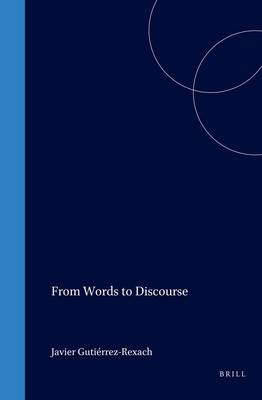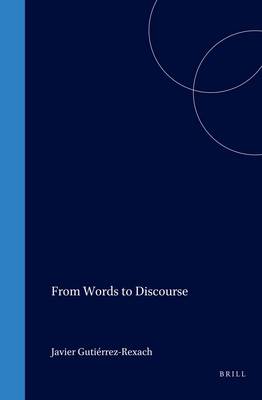
- Afhalen na 1 uur in een winkel met voorraad
- Gratis thuislevering in België vanaf € 30
- Ruim aanbod met 7 miljoen producten
- Afhalen na 1 uur in een winkel met voorraad
- Gratis thuislevering in België vanaf € 30
- Ruim aanbod met 7 miljoen producten
Zoeken
Omschrijving
An area of linguistic research can be considered mature when the validity of theoretical and empirical results is tested cross-linguistically and when predictions from different languages influence and modify the course of theoretical development. The semantics/pragmatics interface poses a special challenge in this respect because of its interdisciplinary and multi-theoretical nature. This volume attempts to bridge the gap between theory and empirical analysis by focussing on several aspects of the semantics and the pragmatics of Spanish from a variety of theoretical points of view. Some of the papers were selected from those presented at the International Conference "Semantics and Pragmatics of Spanish" (Ohio State University, 1999). Others are invited contributions from leading scholars in the field. Among the topics covered are several that have been the subject of intense debate, whereas others represent subtle data patterns not considered so far. The topics include the proper characterization of tense and aspect, the subjunctive, verbal periphrases, stage/individual level predication, the interpretation of infinitives in embedded and adjunct clauses, the subjunctive mood, demonstratives, quantification of excess, exception phrases, binding phenomena, propositional negative polarity items, particles of politeness, and pronominal doubling. Overall, the analysis of these subjects contributes new findings to prominent theories in the field, such as possible world semantics, relevance theory, mental spaces, type coercion, generalized quantifier theory, dynamic semantics, and the theory of logical form.
Specificaties
Betrokkenen
- Auteur(s):
- Uitgeverij:
Inhoud
- Aantal bladzijden:
- 368
- Taal:
- Engels
- Reeks:
- Reeksnummer:
- nr. 10
Eigenschappen
- Productcode (EAN):
- 9780080439914
- Verschijningsdatum:
- 23/04/2002
- Uitvoering:
- Hardcover
- Formaat:
- Genaaid
- Afmetingen:
- 160 mm x 228 mm
- Gewicht:
- 680 g

Alleen bij Standaard Boekhandel
+ 451 punten op je klantenkaart van Standaard Boekhandel
Beoordelingen
We publiceren alleen reviews die voldoen aan de voorwaarden voor reviews. Bekijk onze voorwaarden voor reviews.











